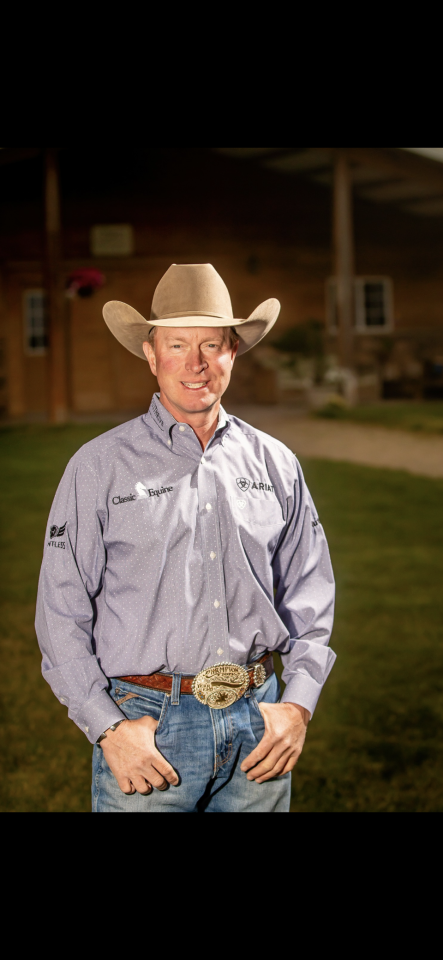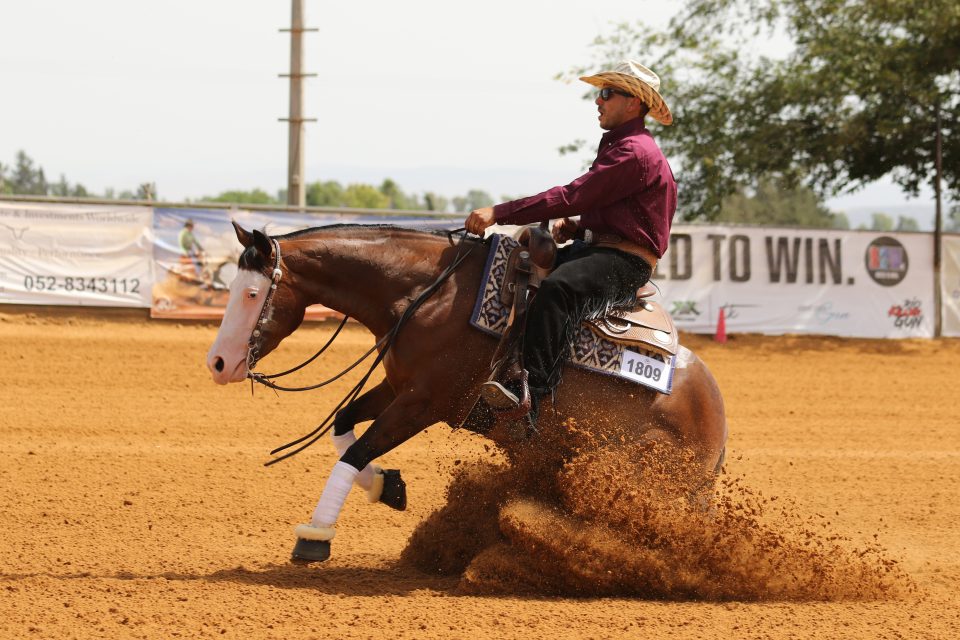It’s important to think outside the saddle to preserve your future.
By Megan Arszman

All it takes is one misstep. One spook. One buck. That’s all it takes to knock you out of commission for a month. Maybe six. Maybe a year. How will you continue to pay the bills and feed the horses when you can’t ride?
Looking farther forward, do you have a nest egg to carry you through retirement, whatever that might look like for you?
These are difficult situations to think about that have made NRHA Professionals such as Casey Hinton and Ryan Rushing realize that being a successful trainer is about more than just riding horses and competing in horse shows.
“I was living and training in Arizona when I had an accident where the horse fell down on me,” Hinton recalls. “It really made me think that if I did get hurt, if I only had one source of income from training, I couldn’t make a living if I got hurt.”
It’s a scary reality that hits many professionals, no matter the discipline. Can you continue to make a living in the horse industry if you have an accident and can’t train? What will you do when you “age out” of your profession? These are topics you must consider—even though their tough to think about.
Part 1: Investing Isn’t a Scary Word
Part 3: Think Outside the Saddle
Part 4: When to Start Investing
Investing Isn’t a Scary Word
Perhaps you don’t think investing and cowboys go together. In fact, they might be polar opposites if you think of investing like the stock market. But there’s so much more to investing than buying and selling stocks.
Investing can be about buying assets that increase in value over time and provide returns in the form of income payments of capital gains. But it can also mean spending time and/or money to improve your own life, or the lives of others.
Both meanings can be accomplished by reining professionals—and it doesn’t have to be that difficult.
“People do better investing in what they’re knowledgeable about and what their skillset is,” says Rushing. “As horse trainers, our greatest skill is our ability to train horses. However, if all you’re doing is training for other people, you’re essentially an hourly worker. You’re not building any assets for the long term.”
This means adding some diversification to your barn, and not just in terms of loud colored Paint horses. Hinton cautions trainers from jumping to the conclusion of thinking bigger is better. Instead, it’s about starting small—within your comfort zone—and thinking outside of just your saddle and then expanding from there.
“It’s about getting started and then following a path to where it leads you,” he says. “You have to have some diversity to your income.”
If you are adamant on focusing on training, Hinton says you can still have some diversity to your training program. Are you focusing on aged-event horses now? You can add in 2-year-old training, non pro lessons with a training program, or expand into conditioning and showing older horses for NRHA World Championships.
“You can have diversity in your training program,” Hinton says.
Read the rest of this article at the links above.



